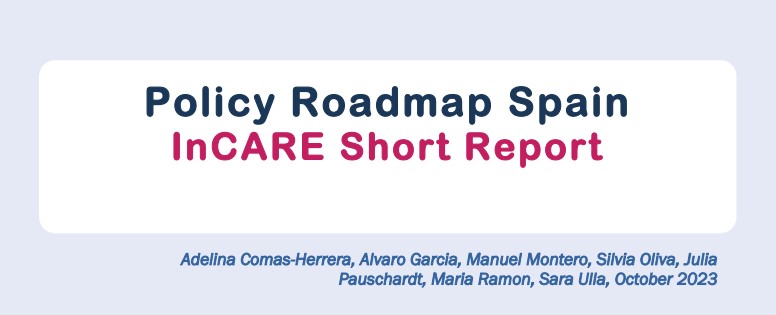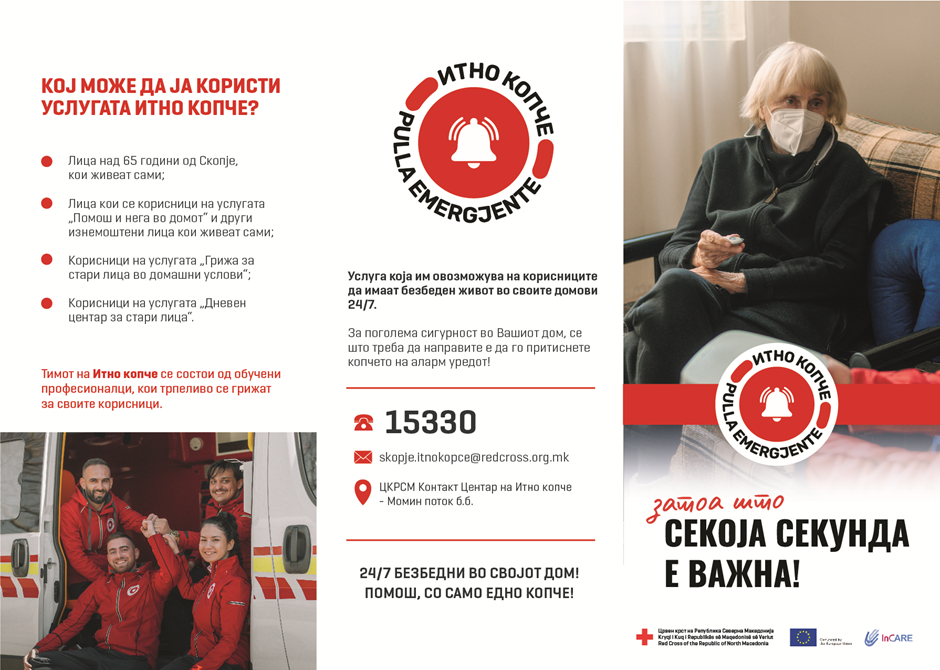The InCARE project aimed to improve the knowledge base and pilot test how to develop…

Reflecting on three years of experimental research on social innovation in LTC, by Selma Kadi, Project Coordinator (European Center for Social Welfare Policy and Research)
Three years ago, the InCARE project set out to experiment with social innovations in long-term care. We had very bold objectives, namely the empowerment of local communities, of older people with care needs, and of their carers through their involvement in the development of socially innovative long-term care services. We also aimed at implementing multi-stakeholder participatory processes in the national pilot projects and strengthening the capacity in long-term care service design and policy through the provision of evidence
InCARE always included sustainability as an important element of the project, accompanying the process of adapting the social innovations to the local context and also built in through policy facilitation groups which provided advice to the pilot projects. After three years, the InCARE project will soon come to an end, and we can be proud of what we achieved – not only with the pilot projects but also in terms of creating impulses that will continue to live beyond the project. Throughout the project, InCARE had a strong ongoing evaluation component, always looking at the system level with the aim to support ongoing policy processes.
Through the InCARE conference, which was held in Vienna on 28 September, we were also able to discuss the project with several international long-term care policy experts. They provided further input to our exchanges on person-centered care, access to quality long-term care and the use of training in developing LTC systems. The experts highlighted examples of innovative technology use and coordination between different levels in the long-term care system in other countries as well as international efforts to support informal carers, for example through the cooperation between the European Union and WHO. The conference experience encouraged us to increase our dissemination activities even further, in order to spread the InCARE approach, as well as the experiences with the particular pilot projects, as an inspiration to others.
We were also delighted to welcome to this event, Susanna Ulinski, Policy Officer at the European Commission, who underlined that InCARE’s objectives and outputs are very much aligned with the latest policy commitments at the European level. “A year ago, the Commission adopted the European Care Strategy to ensure quality, affordable and accessible care services across the EU and improve the situation for both care receivers and the people caring for them”, said Susanna Ulinski. “Projects like INCARE are essential to turn the Strategy into action, underlined by the promising results presented. I believe that INCARE supports a change in the way long-term care systems are organised by developing and testing innovative approaches in Austria, North Macedonia and Spain.”



This Post Has 0 Comments